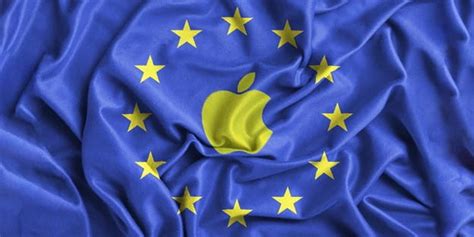The European Union’s crackdown on Apple’s compliance with the Digital Markets Act (DMA) is more than just a bureaucratic skirmish; it’s a harbinger of broader implications for the tech industry. At the heart of the matter lies a fundamental question: how much control should government bodies wield over private corporations? The DMA’s edicts, which aim to level the playing field in digital markets, have thrust Apple into the spotlight, raising questions about the extent to which companies should be bound by external standards.
Many users have expressed **mixed feelings** about Apple’s resistance to the regulations. On one end, there are those like one user who believe that non-compliance veers dangerously close to ‘malicious noncompliance,’ suggesting that regulatory bodies need to take a firm stand. For them, the act of compelling Apple to change its policies is not just about enforcing rules; it’s about setting a precedent. If Apple, a tech behemoth, can skirt regulations, what does that say for smaller corporations who might follow their lead?
On the flip side, critics argue that such regulatory interventions could stifle innovation. One dissenting voice put it succinctly: ‘A government or a similar body should not have a right over a company’s own products’ design.’ This perspective is rooted in the belief that markets should primarily evolve through consumer choice rather than legislative force. Proponents of this viewpoint liken it to past governmental overreach in other industries, arguing that users knew what they were buying into with Apple’s ecosystem. From their angle, it’s less about safety and more about economic liberty.
However, the debate isn’t merely binary. Some consumers see value in these regulations, highlighting analogies with automotive safety standards where features like seat belts became mandatory to ensure user safety. To them, forcing Apple to allow more freedom with their devices equates to crafting a more consumer-friendly and competitive market. In essence, it provides users with more genuine options, be it choosing alternate app stores or sideloading applications.
As someone who navigates between both professional tech reviews and user feedback, I’d argue that the reality likely falls somewhere in the middle. Apple’s market control, particularly in app distribution and device functionality, creates a quasi-monopolistic environment, not dissimilar to historical monopolies that spurred antitrust cases. At the same time, the onus lies on the EU to balance their regulations prudently. Overbearing legislation could indeed throttle some levels of innovation, but well-thought-out policies could foster a healthier market dynamic.
An interesting angle emerges when considering global implications. With **Japan** and potentially **India** looking to follow suit, Apple’s resistance might set the stage for a broader international dialogue on tech governance. Non-compliance could risk Apple’s market share in these regions, given that alternative ecosystems like Android already offer more flexibility owing to lesser strictures on app installations and device management.
In conclusion, the EU’s stance on Apple symbolizes a clash between maintaining corporate autonomy and enforcing consumer rights. It’s a complex landscape where users, regulators, and companies must navigate the nuances of market freedom and innovation. The discourse points to a broader need for a balanced approach, ensuring that while innovation is not stymied, consumer rights and fair play in digital markets are upheld. The coming years will likely witness the ripple effects of these regulations, shaping the tech ecosystem in unprecedented ways.


Leave a Reply